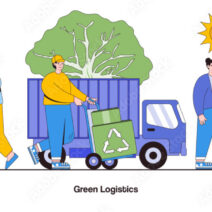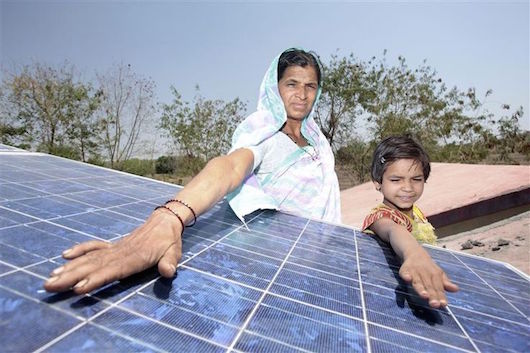In a country as vast and diverse as India, the necessity for energy conservation has never been more paramount. With a population exceeding 1.4 billion and a burgeoning economy, the demand for energy resources continues to escalate, leading to environmental concerns and challenges in achieving sustainability. However, local solutions abound, and shifting perspectives on energy use can fuel this journey towards conservation.
At the heart of energy conservation lies the recognition that small, localized actions can yield significant results. It is essential to comprehend that the energy consumption patterns in urban areas differ markedly from those in rural locales. Urban centers often grapple with high energy demands fueled by infrastructure and industry, while rural areas might lean more towards traditional energy practices and lesser efficiency. Hence, tailored approaches to energy conservation are vital in addressing regional disparities.
One remarkable initiative is the utilization of solar energy, particularly in rural regions where electricity access remains intermittent. The Indian government has made strides through the Decentralized Solar Power Programme, which aims to provide off-grid solar solutions to communities. By installing solar panels on rooftops and in remote areas, these communities experience not only an increase in energy availability but also a decrease in reliance on fossil fuels that contribute to climate change. The visibility of solar projects also cultivates a culture of innovation, as residents witness the benefits of a renewable alternative.
Moreover, fostering a culture of energy efficiency necessitates education. Schools can implement curricula that emphasize the importance of conserving energy resources, focusing on practical applications. Programs encouraging students to engage in energy audits at home could empower them to identify inefficiencies and recommend solutions. Through grassroots involvement, families become more mindful of their energy consumption. For instance, simple practices like using energy-efficient bulbs, optimizing appliance usage, and reducing wastage can proliferate rapidly when nurtured from a young age.
In addition to education, community-led initiatives can spur change. Take, for example, energy cooperatives, which can be transformative. Residents pool their resources to create shared renewable energy systems. This model not only democratizes energy access but also builds a sense of collective responsibility. Localized systems reduce transmission losses and can be customized to fit the needs of the community. The success of such cooperatives in states like Gujarat showcases how collaborative efforts can mitigate energy shortages and accentuate renewable practices.
Water management presents another avenue for energy conservation. In agriculture, a sector heavily reliant on water, optimizing irrigation techniques is crucial. Techniques such as drip irrigation and rainwater harvesting conserve water and, concurrently, the energy utilized to pump water. Farmers can adopt these methods, reducing operational costs while enhancing crop yield. These advancements can also facilitate the shift towards more sustainable agricultural practices, further aligning with energy conservation goals.
Innovations in technology also play a pivotal role in conserving energy resources. Smart grids, which incorporate digital communication technology, allow for real-time monitoring of energy consumption. They empower consumers to adjust their usage based on peak load demands. In cities like Bengaluru, such systems have been piloted, demonstrating significant reductions in energy wastage. By equipping users with data, they can make informed decisions about their consumption patterns, leading to more sustainable practices.
However, it is crucial to acknowledge that energy conservation is not solely an individual effort. Policymaking has a profound influence on energy practices. Advocating for policy changes that promote energy-efficient appliances, subsidize renewable energy installations, and incentivize conservation measures can establish a foundation for systemic change. Governments can create frameworks that encourage investment in sustainable resources, steering society towards a more responsible energy future.
Moreover, local leaders can act as catalysts for change. Through advocacy and education, they can mobilize communities to embrace energy conservation initiatives. The role of women in rural areas, for example, has proven instrumental in driving these efforts. Programs empowering women to lead energy conservation projects have been remarkably successful. By leveraging existing social structures, communities can achieve resonance and commitment to sustainable practices.
Transport systems also merit attention in the pursuit of energy conservation. Promoting public transportation, cycling, and walking can significantly reduce energy use associated with fossil fuel consumption. Cities like Delhi have initiated “car-free” days, inspiring citizens to adopt alternative modes of transport. Such endeavors can catalyze a shift in behavior, creating a ripple effect that fosters long-term commitment to public transport use and healthier lifestyles.
Finally, embracing the circular economy model offers a compelling framework for energy resource conservation. By prioritizing recycling, reusing, and repurposing materials, energy consumption associated with production diminishes. Local artisans and businesses can thrive in a circular economy, fostering innovation and sustainability. Initiatives that promote zero-waste practices can energize communities, encouraging them to rethink consumption habits and minimize their ecological footprint.
In summation, conserving energy resources in India does not solely rest on larger governmental policies or major infrastructural changes; it can start at the grassroots level through local solutions that resonate with communities. A collective shift in awareness and action can pave the way towards a sustainable future. By harnessing renewable energy, promoting education, facilitating community initiatives, optimizing water usage, leveraging technology, and supporting sustainable transport, India can take significant strides in conserving energy resources while inspiring others to follow suit. The journey towards sustainability is ongoing, and every small step counts in safeguarding the planet for future generations.







